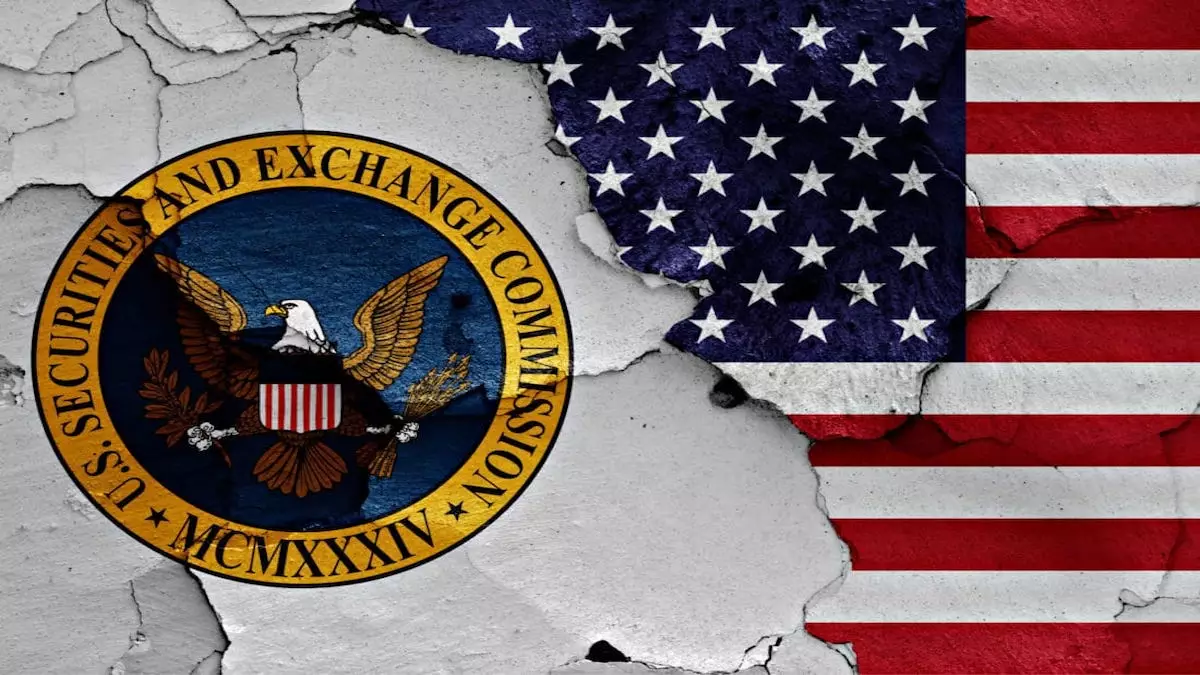The recent Wells notice issued by the U.S. SEC to OpenSea has stirred up conversations about digital-asset regulation. The SEC claims that some NFTs traded on the platform may be considered unregistered securities, potentially implicating OpenSea as a platform in violation of securities laws. This raises questions about whether the SEC is overstepping its jurisdiction in the realm of digital assets and what consequences this investigation could have for OpenSea and the broader NFT market.
The SEC’s scrutiny of OpenSea is part of its broader goal to apply securities laws to the crypto and NFT sectors. With CEO Devin Finzer vowing to contest the SEC’s accusation, the case against OpenSea hinges on the allegation that the platform functions as an unregistered securities exchange due to the sale of potentially unregistered securities in the form of NFTs. As the SEC ramps up its investigations into crypto-related companies, OpenSea finds itself in the spotlight as a target for enforcement action.
The SEC’s regulatory crackdown on OpenSea has sent ripples of concern throughout the NFT ecosystem. Creators, developers, and marketplace operators are uncertain about how this enforcement action could disrupt their industry, leading to speculation about potential ramifications. OpenSea’s preemptive allocation of $5 million for legal expenses underscores the seriousness of the situation, as regulatory intervention threatens to alter the landscape of the NFT market.
While regulatory oversight can provide clarity and stability to a maturing market, the SEC’s rigid application of securities laws to NFTs risks stifling the artistic and creative expression that defines the NFT space. Many creators view their NFTs as digital art rather than investment vehicles, challenging the SEC’s attempts to categorize them as securities. The ongoing investigation into Yuga Labs, the creator of the Bored Ape Yacht Club NFT collection, further exemplifies the regulatory scrutiny faced by successful NFT projects.
If NFTs are classified as securities, the repercussions could extend beyond creators to impact platforms and investors operating in the digital economy. The SEC’s efforts to regulate NFTs and their underlying platforms risk undermining the principles of decentralization that underpin the NFT ecosystem. By imposing traditional financial regulations on innovative technologies, the SEC may inadvertently steer NFT platforms toward centralized control, contradicting the original ethos of permissionless interaction between creators and users.
The legal battle between OpenSea and the SEC stands as a pivotal moment for the NFT market, with implications for future regulatory oversight and compliance costs. While increased regulation may enhance consumer protection, it could also marginalize smaller creators and restrict access to NFT platforms. The SEC’s actions might galvanize calls for tailored regulations specific to NFTs, offering potential benefits for the ecosystem if implemented thoughtfully. However, this would necessitate a shift in the SEC’s approach to accommodate the unique features of NFTs and blockchain technology.
As the SEC’s investigation into OpenSea unfolds, the future of the NFT market hangs in the balance. Balancing investor protection with artistic freedom poses a complex challenge for regulators seeking to navigate the ever-evolving landscape of digital assets. A nuanced and collaborative approach to regulation is essential to safeguarding the vibrancy and innovation of the NFT ecosystem while ensuring compliance with financial laws. As stakeholders await the outcome of the OpenSea case, the broader implications for the NFT market are far-reaching, shaping the trajectory of digital art and collectibles in the digital age.


Leave a Reply